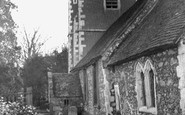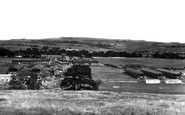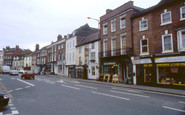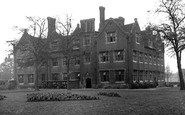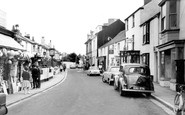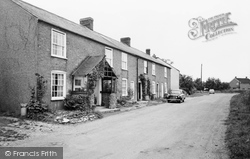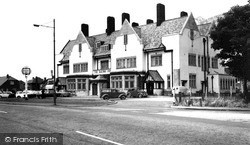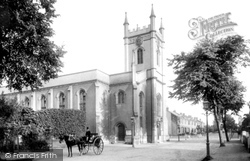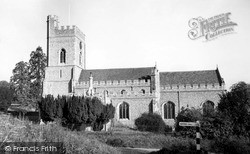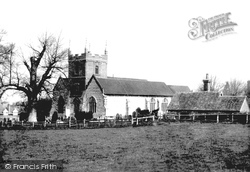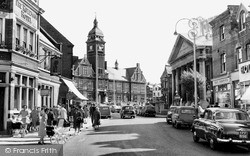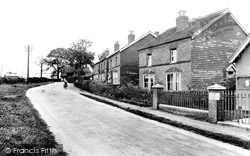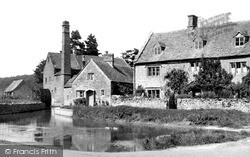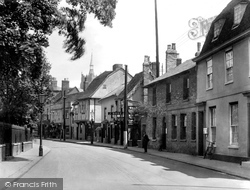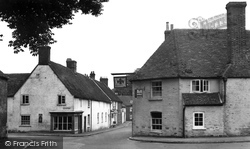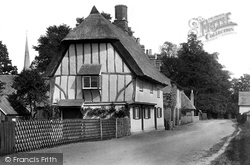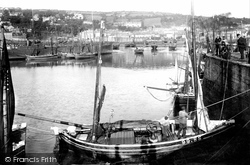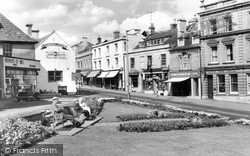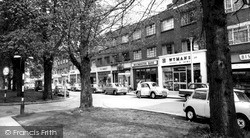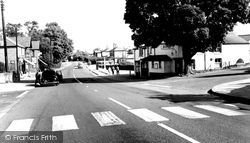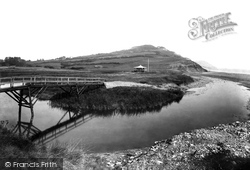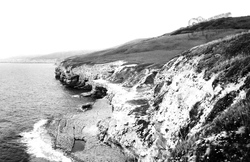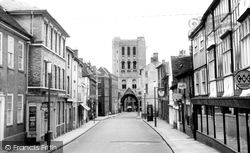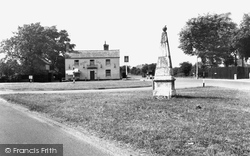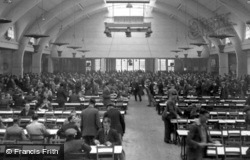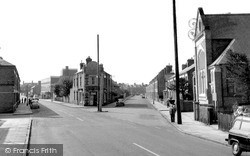Places
Sorry, no places were found that related to your search.
Photos
Sorry, no photos were found that related to your search.
Maps
Sorry, no maps were found that related to your search.
Books
Sorry, no books were found that related to your search.
Memories
655 memories found. Showing results 51 to 60.
Bell Ringing
The is the church I was baptised in. As I child I used to go bell ringing here (St James the Less). We used to climb up the very narrow stairwell being very careful not to slip. Every week we used to practise. There were six bells and ...Read more
A memory of Dorney in 1960 by
Bent Toe
I attended Brown Rigg from 1964 to 1966. As I recall, Bent Toe got stuck in a mud hole and was that exhausted with trying to get out it was kinder to have him put to sleep as the stress and strain on his heart, he was a big horse. I ...Read more
A memory of Bellingham in 1964 by
Best Guinness In Town!
The little white building in the middle is the Lamb & Flag. I spent many a happy lunchtime & evening there in the '80's. It was a Marstons pub, run then by Don & Sheila Jones, an Irish couple who I think had been ...Read more
A memory of Worcester by
Best Place Ever.
I was born at Lintzford in the 1940's. A lovely safe place to live for everyone there. The neighbours were always available to help each other out, our life was safe and secure. I always remember going up to 'Table Rock' where my ...Read more
A memory of Lintzford by
Bindley Village / Brindley Heath
Can anyone remember the old school at Brindley Village, right in the heart of The Chase? My sisters and I all went to the school until 1957 when the school was shut. It was a sad day, nobody wanted to leave there ...Read more
A memory of Hednesford in 1956 by
Bitter Sweet Memories
I was born in Upney Hospital in early 1951, the youngest of six children. We lived with our parents in North Street. When I was two our parents split up and my dad eventually 'won' custody of myself and the brother next up to ...Read more
A memory of Barking
Blackpool Stores
As a child my annual family holiday was spent in Shaldon, first staying at The Teign Crest as a baby and small child, later at The Clipper. Two weeks of blissful freedom - shoeless and carefree. Not many cars in the village in the ...Read more
A memory of Shaldon in 1965 by
Blacksmith's Lane Post War
It's a shame that there are no memories of South Hornchurch yet - so let me be the first. I lived in Blacksmiths Lane from birth in 1947 until I married in 1973, but retained close links as I was also the local ...Read more
A memory of South Hornchurch by
Blythe Mansions, Hornsey Rise
I can vividly remember Blythe Mansions, I used to go there with my late mother to visit an aunt and other relatives who lived there, I can still see it now, there were two sections of the estate as I recall, with two half ...Read more
A memory of Hornsey by
Bog Houses
Does anyone remember the Thompsons of No1 Bog Houses? Mary and Jimmy lived there with their daughter Nancy. They ran a pork shop for a time I think in the 40's but it closed during the war years; the shop front remained until around ...Read more
A memory of Cramlington in 1961 by
Captions
405 captions found. Showing results 121 to 144.
Outside the row of terraced cottages at Breachwood Green near Hitchin stands a pristine Ford 100E model. In front of one of these houses stood the community's well.
This pub should technically be called The New Railway Inn, because it stands on the site of a former inn of the same name.
The most striking change between this view and the 1903 view in image 49238 is the splendidly ornate bank building which replaced the two buildings beyond Patterson's.
South Road became so dominant that it altered the character and subsequent development of other areas within the town such as Commercial Square, Boltro Road, and the Broadway.
Mrs Hitchman, widow of Dr Hitchman, donated the site for this church together with a large sum of money.
There has been a church at Watton at Stone since the 13th century. It was originally dedicated to St Mary, but St Andrew seems to have been added in the early 19th century.
The bold square brick tower was built onto a 13th-century base c1656 after an earlier tower had collapsed.
Looking towards the Town Hall It is a busy summer's day in the 1960s.
A small village at the western edge of St Leonards Forest, on the main road and railway line between Horsham and Crawley. Local legends say that dragons and serpents inhabited the forest.
A water mill has stood here since Norman times, but this red brick corn mill dates from the early 1800s.
The name Trinity was chosen to indicate the group's opposition to Unitarian non-Trinitarian doctrine.
We are looking northwards towards the Square (centre), with 18th-century brick and tile houses on both sides of Wimborne Street.
It is sometimes almost unbelievable when we realise how much of our heritage has been destroyed during the past century.
Putting ashore the catch is a perennial attraction for bystanders on any jetty. These, judging by the smartness of their dress (complete with pocket handkerchief), are clearly not fishermen.
The Lloyds Bank building (right), originally a pair of attached houses, was built about 1870 before the decorative façade was added in two stages.
With the arrival of the Piccadilly Line came an influx of commuters, and with this influx came the promise of commercial profits.
While not obvious from this photograph, Gresford is most famous for the tragic mining disaster of 1934 when 266 lives were lost following an explosion and fire at the Gresford Colliery.
We are looking eastwards from the blocked mouth of the River Char, which ends its journey to the sea by having to break through a ridge of shingle (right).
Romantically named for the sea breaking across its rocks, Dancing Ledge is a mile south of Langton Matravers village.
On the right are the Edwardian buildings occupied by Marlow's from 1925 to 1975, Watson's Post Office and the Queens Head.
A few hundred yards along the present B1514 road past the turning to Pepys House, the road forks at the roundabout where the main road runs eastwards towards the A14 and the left road takes us
This was in the early phase of its transformation, mainly by the medium of brick. The
The canteen resembles a cave, but in its heyday there was far from savage fare to be had here! In the 1930s there were 3 lunch sittings, and it was routine to have 2 pints at the bar.
These red brick terraces were built to house the employees of hosiery and shoe manufacturers at the turn of the century.
Places (0)
Photos (0)
Memories (655)
Books (0)
Maps (0)

